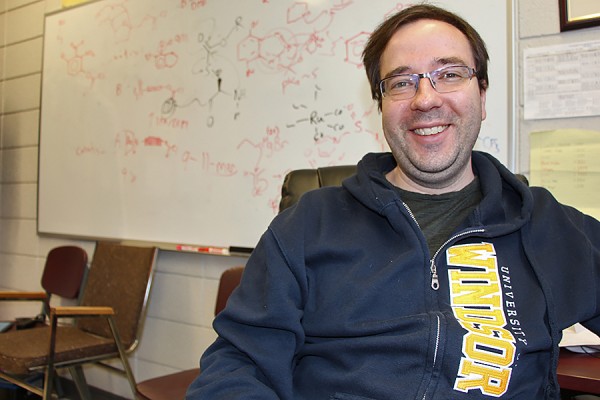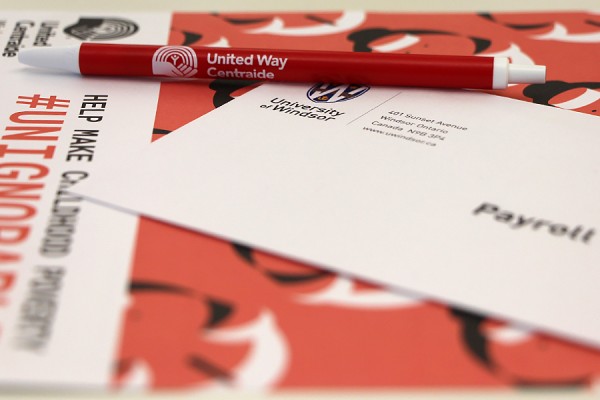 UWindsor chemist John Trant has received a grant from the American Chemical Society Petroleum Research Fund to design molecular tubes that can self-destruct on command.
UWindsor chemist John Trant has received a grant from the American Chemical Society Petroleum Research Fund to design molecular tubes that can self-destruct on command.
Imagine a nanoscopic device that can be implanted in your body to slowly release medication and that self-destructs when it’s done.
A UWindsor chemist is working on such a breakthrough, thanks to a $110,000 US grant from the American Chemical Society Petroleum Research Fund.
John Trant proposes making molecular tubes from organic petroleum byproducts. A biomedical chemistry researcher, he aims to design nanotubes that can be inserted into bacteria or cancer cells in the body.
“The idea here is to make a tube your body can degrade,” Dr. Trant said. “It could lead to new pharmaceuticals that could maybe kill bacteria or can be used for delivering drugs.”
Trant and his team of researchers will delve into the world of rotaxanes, a field pioneered by UWindsor professor Steven Loeb whose research was cited in the work of the winners of the 2016 Nobel Prize in Chemistry.
A rotaxane is a nanoscopic tubular structure made of a series of a rings assembled around a barbell-shaped rod with balls on each end. Pseudo-rotaxanes are similar structures without the balls and where the rings must be strongly attracted to the rod to avoid falling off.
If the rings could be attached to one another, they would form a tube once the rod in the middle is removed. The problem is that the rings are strongly bound to the rod or thread that runs through them. The longer the tube, the harder it is to remove the rod.
Trant said his research will involve designing these structures where, instead of removing the rod, it will just breakdown in place on command.
“No current approach allows for that,” he said. “It sidesteps the entire problem in accessing this type of structure.”
The nanotubes he is developing offer a promising alternative to carbon nanotubes which don’t degrade in the body and are possibly toxic.
Earlier this year, the province identified Trant as a rising star in the world of biomedical research, awarding him an Early Researcher Award grant to help offset his work in chemistry, materials science and molecular biology for the next five years.
“Chemistry gives us the tools to design and build specific solutions to solve unmet problems in medicine and materials science. It’s like playing with the world’s largest and most diverse Lego kit,” Trant said.
“It’s awesome that funding agencies recognize the promise of this approach.”
In addition to authoring recent research on lab safety, Trant is also an executive member of the Windsor Cancer Research Group. He and WCRG colleague, UWindsor biologist Lisa Porter, are developing new drugs to target the proteins that protect cells from mutating into tumours.
He is also working on innovations that could lead to anti-cancer vaccines, and new drugs to treat rheumatoid arthritis and other autoimmune diseases.
—Sarah Sacheli


